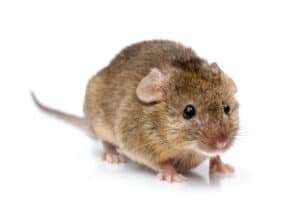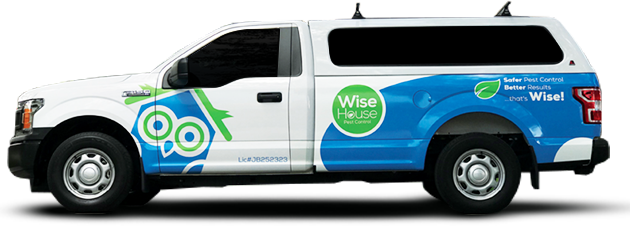If you find small droppings in your pantry or can hear unsettling sound of scurrying in your walls, it could be a sign of house mice. In South Florida, these tiny pests can quickly turn from a minor annoyance into a significant problem, compromising your home’s cleanliness, safety, and structural integrity.
In this post we aim to equip you with information and strategies to help you keep house mice at bay. From understanding their habits and the risks they pose to implementing effective prevention measures, this post will help you protect your home and family from these persistent pests. Whether you’re already dealing with an infestation or want to ensure your home remains mouse-free.

The house mouse (Mus musculus) is one of the most common rodent pests in homes across South Florida. These small, agile creatures are known for their ability to adapt to human environments, often nesting inside homes where food and shelter are readily available. House mice are typically about 2.5 to 4 inches long, with tails that add an additional 3 to 4 inches. Their fur is usually light brown or gray with a lighter underbelly, and they have large ears and small, beady eyes.
House mice thrive in various environments, from rural farms to urban areas. In South Florida, the warm climate and abundant food sources make residential areas particularly attractive to these rodents. House mice have a slender body, large ears, and a pointed snout. Their small eyes are well-suited to their nocturnal lifestyle. They often enter homes through tiny cracks and openings, setting up nests in walls, attics, and other secluded spots.
Identifying house mice early can help you avoid a full-blown infestation. Here’s how you can recognize these pests:
If you see any of these signs, it’s likely you have a house mouse infestation.
House mice are highly adaptable creatures, capable of thriving in a wide range of environments. Understanding their biology and behavior is key to effectively controlling and preventing infestations.
Habitat and Nesting Behavior
House mice prefer to live close to food sources and shelter. They are most commonly found indoors, where they can build nests in hidden areas:
House mice are omnivores with a preference for grains and seeds, but they will eat a wide variety of foods, including:
House mice reproduce quickly, which makes controlling an infestation challenging.
House mice, while seemingly solitary creatures scurrying in the shadows, exhibit complex social behaviors and maintain distinct social structures within their populations. Their interactions are characterized by a blend of cooperation and competition, shaped by factors such as kinship, sex, and resource availability.
Don’t underestimate the dangers posed by house mice. They are carriers of diseases and can contaminate food supplies, posing serious health risks to you and your family.
Preventing a house mouse infestation requires making your home less inviting to these rodents. Here’s how you can protect your home:
Identify and Seal Entry Points: House mice can squeeze through spaces barely bigger than a dime, so it’s time to get sharp about securing your home’s exterior. Don’t cut corners—inspect every nook and cranny around doors, windows, vents, and utility lines. Use steel wool, caulk, or hardware cloth to shut down those sneaky entryways once and for all.
Maintain a Clean and Tidy Home: House mice are drawn to food and clutter. To keep them at bay, maintain a clean home by promptly wiping up crumbs, spills, and food debris. Store food in airtight containers, ensure your trash cans have secure lids, and reduce clutter in storage areas like basements and attics to remove potential nesting spots.
Remove Potential Nesting Sites: House mice seek out warm, secluded spots for nesting. Regularly clean and organize storage areas, and remove any debris or clutter that could provide shelter. Ensure that outdoor areas, such as gardens and sheds, are kept tidy and free of materials that could attract mice.
Consider Professional Pest Control Services: For severe or ongoing infestations, professional pest control services may be necessary. Pest control professionals have the expertise to help eliminate house mice and prevent future infestations. They can also perform a comprehensive inspection of your home to identify and address vulnerabilities.
Ongoing Maintenance: Keeping your home mouse-free requires consistent effort. Regularly inspect your home for signs of mouse activity, maintain cleanliness, and keep potential entry points sealed. Even after an infestation has been addressed, staying vigilant will help prevent future problems.
Yes, they certainly can be. Don’t let their small size fool you—house mice can seriously jeopardize your health. They spread diseases like salmonella and hantavirus by leaving droppings and urine on food and surfaces. Plus, their habit of chewing on electrical wires can lead to dangerous fire risks.
House mice are experts at slipping through the smallest cracks. They can easily invade your home through gaps in your foundation, walls, or around doors and windows. They might also sneak in through vents, pipes, or even under your garage door.
Mice are drawn to easy access to food, water, and shelter. In South Florida, things like open trash cans, pet food, bird feeders, and cluttered storage spaces can serve as invitations for mice to enter your home.
Yes, house mice can carry and transmit diseases like hantavirus, salmonella, and lymphocytic choriomeningitis virus (LCMV). In South Florida, where you may encounter them more frequently, maintaining a clean environment and addressing infestations promptly is crucial.

Ready to send away pests without harming your pets? Getting started with Wise House Environmental Services is as easy as 1-2-3:
With Wise House Environmental Services, you get more than just effective pest control; you get peace of mind, knowing that your home is without pests and safer for your pets.
Our approach to pest control combines science with safety, offering you the kind of targeted, effective solutions that you won’t find with just any other pest control service. Our services have made a world of difference for homeowners, and we can do the same for you. Your pets will thank you for it!
We serve Port St. Lucie,Lake Worth, Boyton Beach, Palm Beachand the Treasure Coast.


© 2023 All Rights Reserved. | Sitemap